Teerth talks to Punya about rhythm, drumming and playing for Osho.
Why do we still call you ‘Teerth from Mexico’? One would expect to hear you speak with a Latin accent, but you speak like a Californian!
I was born in Mexico City and raised there; it is a big part of my culture and upbringing. Although my parents were born in the US and I later moved there at age 17 I never really felt American. My DNA is mostly Mexican and Spanish.
When did you fall in love with drums?
As long as I can remember I had a love affair with drums. At one Christmas I was given a conga drum – I was about 7 or 8 – and a few years later when my friend got a guitar I joined him by playing drums on a cookie tin (it had a great sound!). I remember the first time when I sat behind a drum set – I was about 10 – I could not even reach the pedals…. I felt like I was in a space ship. It was the most incredible magical feeling!
Actually I did not play drum set until I was 17, even though rhythm had always been a huge part of my life. As a kid I used to always be air drumming (and people thought there was something wrong with me). I am still air drumming to this day (demonstration). You cannot hear it – but I can!
The other night when we played with you I realised that you are a musician and not ‘just’ a drummer and percussionist! One usually associates drummers with good sense of rhythm and great physical stamina but we do not necessarily expect from them that delicate sense for music we heard when you played. Do you want to comment?
One of the most important things in playing music is to listen! Without listening the music can never sound good. This aspect of music, of sensitivity, at least for me, comes with years of experience. I have had the opportunity to play in many different musical situations, and with very good musicians. I have been fortunate to have had many mentors. When I quit my day job I played with a band where the members where a lot older than me and had a lot of experience. They took me under their wing and it was like being in school. And in Pune, I played with Nivedano, one of the world’s most famous percussionists. That was a big learning for me. If my playing was not grooving he would just give me a look and I had to stop whatever I was doing and play something else.
I am interested in all forms of percussion, besides drumming, and over the years it has become clear to me that my focus should be on ‘serving the music’ in whichever situation I am in. By ‘serving the music’ I mean that the music is the main focus and not the musician, e.g. not overplaying. It so easy to fill the space with your playing, to show off, to feel important. But that is not what it is about. Over time your hearing, your ears, develop as well as your sensitivity. It is all about putting the ego aside.
Can you describe the magic of ‘riding the groove’?
Life is in constant rhythm; there is a constant pulse. There is rhythm in everything. It is just a matter of tuning into it and feeling the pulse. Like the cicadas out here. One of the important things I feel when playing music is to feel the pulse internally as well as to mark it with some part of your body. A lot of times I see bass players or keyboard players and notice that the way they keep time with their feet is off from where the pulse is. This messes with the groove. When I play guitar I always keep the pulse with my foot. Another very important aspect is breathing. Being aware of your breath is a constant reminder to remain in the flow and stay in the groove.
When music is not grooving it is not relaxed; it is like pushing against the stream. And when you are in the groove, you are flowing; it is relaxed. Which does not mean that it does not speed up or slow down but when it does you do it consciously. No tension, flowing.
When a musician is in the groove we call it being ‘in the pocket’.
You can’t really teach groove. You can give pointers, it is like an understanding of allowing and relaxing. A musician might be playing rhythmically correct (all the beats in the right place) but it doesn’t have swing. Without swing music feels straight, not round; it doesn’t grab you. Not much fun! If you can dance and feel music, it is a lot easier to understand what groove is.
I saw you play for Osho in White Robe – and even before when we were still wearing colourful clothes – for the evening discourses. How was that for you?
To play music for Osho was one of the most amazing experiences in my life. I took sannyas in January 1987, the month when Osho returned to the ashram in Pune. This was a very special time. Because of my connection with Rupesh and my brother Gyan Marcos (both musicians who had played for Osho) I was introduced to both Nivedano and Milarepa. As Nivedano was taking a break from playing, Milarepa, who was in charge of the music department, invited me and Sandesh, a Japanese drummer, to take turns playing for Osho’s discourses.
Osho was giving discourse every morning and every evening. This was still in Chuang Tzu before Buddha Hall was rebuilt. There was a six-week period when I played for Osho every day. We were so close to him, about 2 meters from his chair. It was a very magical time; musicians would get together in the afternoon and create music which we would then play that evening or the next morning.
It was so intimate between Osho and those of us that were there. One evening in particular I realised, sitting in front of the master, that this moment was the pinnacle of my life as a musician. When you are in his presence you become a conduit of something that is larger than you; it is really about setting the ego aside.
I knew then that I would never be able to top this experience. I felt in complete unity; where there was no separation between me, the master or anything else. In his presence in that moment there was letting go of all personality and identification, melting into the vastness of the whole.
This feeling has remained with me since then and I feel so grateful that I was aware to realise how important it was.
Have you ever had the chance to play the big drum in discourse?
During White Robe Nivedano was always playing the drum kit and I was playing percussion. It was my not-so-secret wish to play drum set but there was no way that Nivedano was going to get off that kit. One day Osho asked Nivedano to take a trip and buy musical instruments for the ashram. My chance had finally arrived and there I was sitting behind the drum kit with the big drum on the side. This was another major highlight in my life.
It was the time when we were doing the gibberish and the let go meditation after his discourses. It was up to me to give the four drum beats which marked the different stages of the meditation. I had never had to be so present in my entire life. I was the only one in Buddha Hall, besides Osho, who was not doing the gibberish. As much as my attention wanted to waver to witness the madness around, I had to stay completely present with the master, waiting for his signal. Of course the name he called was “Nivedano” and not mine…
How has being with Osho changed your life?
I was 28 years old when I took sannyas, my Saturn return. One of the biggest impacts Osho has had on me is how I learned to balance life between celebration and meditation. He talked about the New Man, Zorba the Buddha. Having been born and raised in Latin America I was used to the celebrating aspect of life: music, parties, dancing, that sort of thing. And then coming to Pune and being with Osho I was able to experience the other side, meditation; not only silent sitting but also all the other active meditations he had come up with. I learned to quiet the mind. I fitted so well in the Osho commune because it embraced all aspects of life: meditation and celebration. Everything was allowed.
The second aspect which changed my life was the community. The deep friendships that I made in that time have carried on through the years. It is amazing how, like here in Corfu, I have reconnected with friends some who I have not seen for 25 years. The feeling is that the time has not passed. The body gets older but the love does not change. With so many of my friends I feel seen and deeply appreciated and that continues with new friends and Osho lovers.
What have you been up to since I last saw you in Pune?
For the last 23 years I have continued my musical journey. I was able to fulfil a life-long dream and at the age of 35 I moved to Los Angeles and went to music school for 2 years. I had been mostly a self-taught drummer. Growing up I had had a few lessons here and there but no official training. But going to music school took my playing to a whole new level. I was able to see how serious drummers and musicians are about their craft. I was able to study with the best drummers on the planet and I learned sooo much. I needed to start all over from the ground up.
I learned how to read notes, how to play a lot of different styles of music. E.g. I thought I knew about Latin rhythms and realised that I really did not know that much. I learned that you need to know the key (clave) to every style you are playing. If you do not know the key of any particular style, then what you are playing is inauthentic. You might not play the beats of the clave pattern, but it is essential that you hear it internally.
I also had the opportunity for the first time in my life to practice my instrument for hours a day. There was so much to learn and so much to work on. Sweat, sweat!
The music school experience allowed me to play in so many different musical situations which I would not have been able to otherwise. I learned how to play Jazz, all kinds of Latin rhythms, and other styles. This allowed me to play in many different situations with world class musicians, including a philharmonic orchestra.
Can you make a living as a musician?
Although there have been many times in my life where I made my living from music I realised that I did not want to take any gig which came my way just because I needed to pay the rent. I did not want to take gigs that I did not care for, or play with musicians I did not like, just to make ends meet. So for the last 20 years I have been playing music because of my joy and passion – and sometimes there is money and sometimes there is no money.
I see in Facebook that you keep us updated about the gigs you play in San Francisco, but you are also travelling. Now you are here in Corfu, where you played with Deva Premal and Miten and next week you are heading for the Festival at Afroz in Lesvos.
In the last few years I have been spending half the year in the San Francisco Bay area where I have been playing with Latin, Jazz, and Groove bands in clubs, and the other half travelling. I have been touring in Europe with Milarepa in summer and in the USA in fall and recently I have been travelling and playing in South America, especially in Chile, accompanying different musicians and bands. Just now I am coming from Portugal where my dear friends Harida and Nartan have their annual Osho Festival which has a lot of live music.
Some years ago I started playing and singing in Kirtan bands, and discovered Bhakti Yoga. After staffing the Tantra Mantra workshop with Deva and Miten in Mexico, I was inspired to pick up the guitar, learn chords and sing mantras. Since then I have had the opportunity to share Mantra singing all over Europe, the US, South America and Mexico. Which I love.
How do you experience the shift between playing in clubs and concerts and playing for meditators?
Playing for meditators is about silence. Everything you do is to create a deeper silence. When you play in clubs it is more about enjoying and appreciating the music, and the dancing. They both have their place.
The common denominator is: serving the music.
www.teerthgonzalez.com
Interview taken by Punya, August 2014


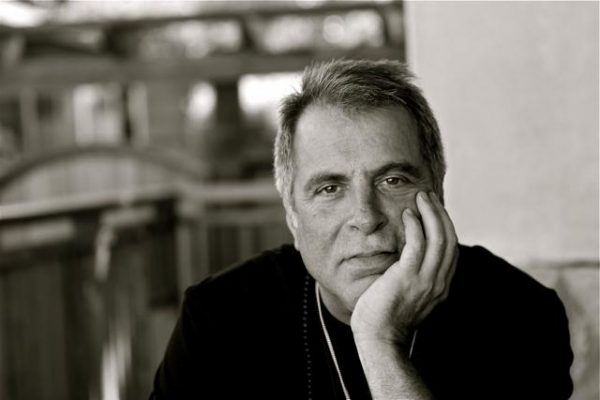
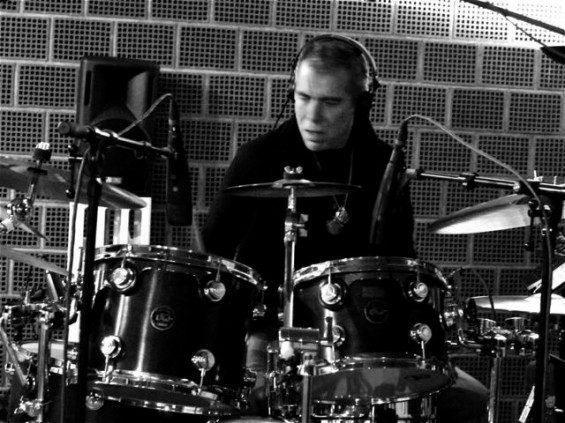
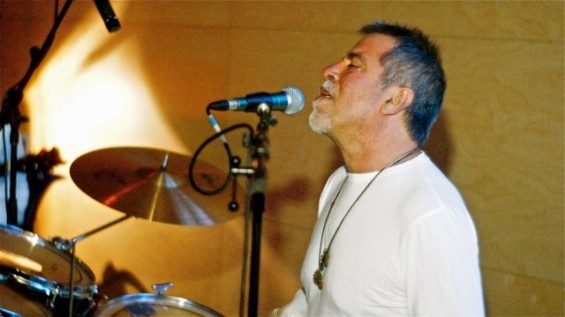
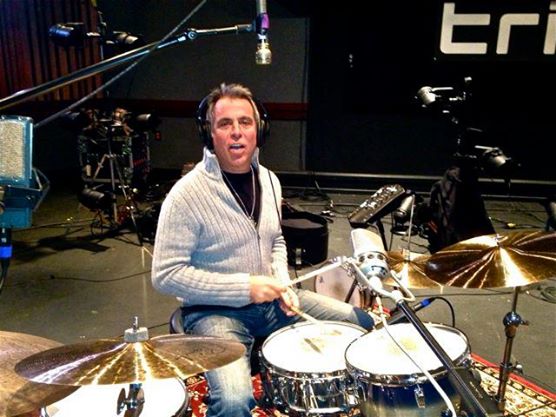
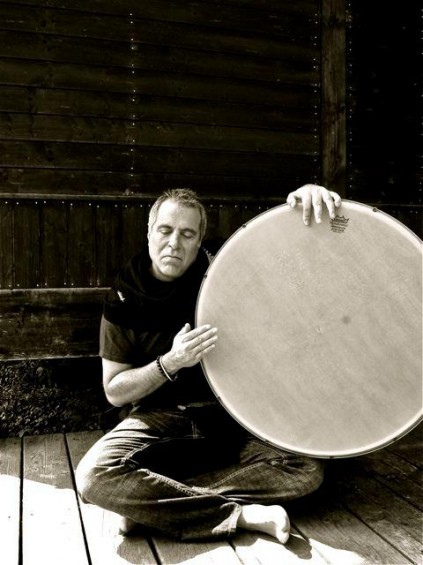
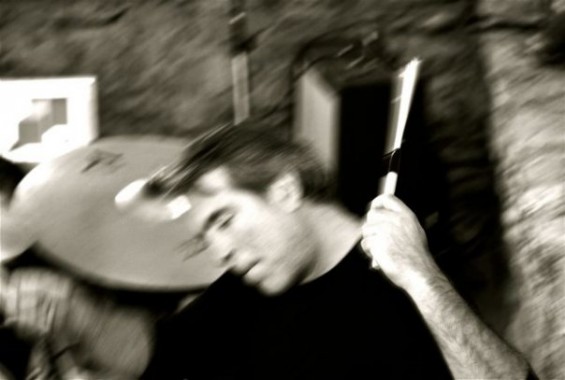
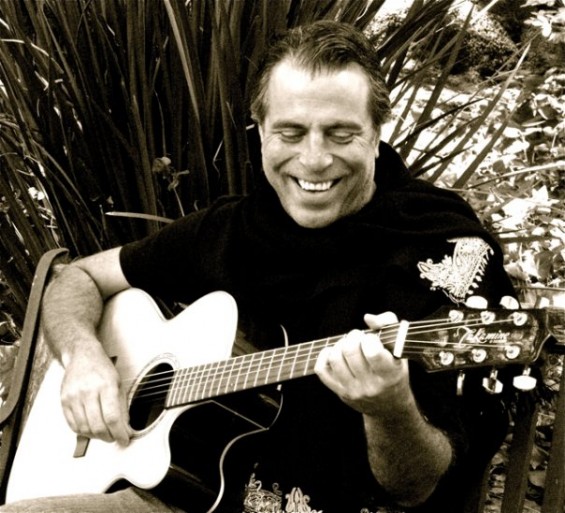
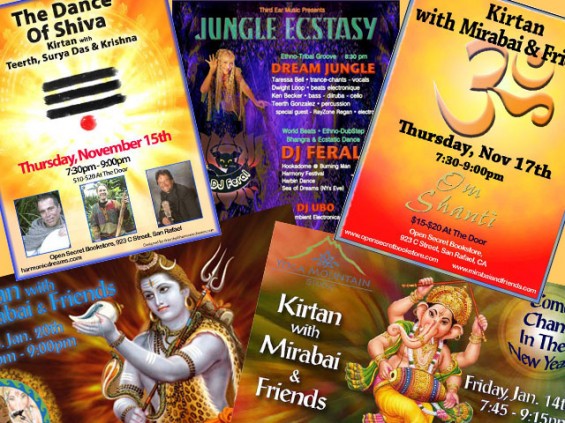
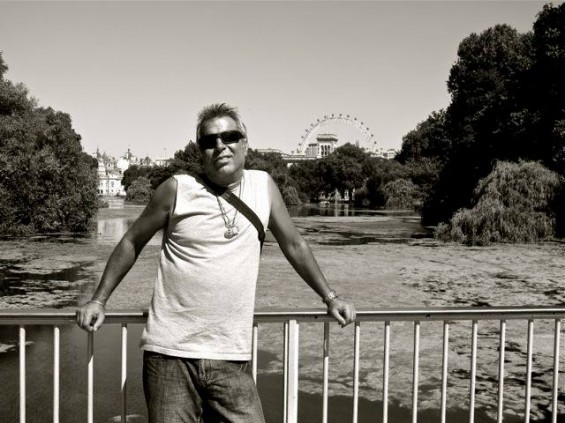
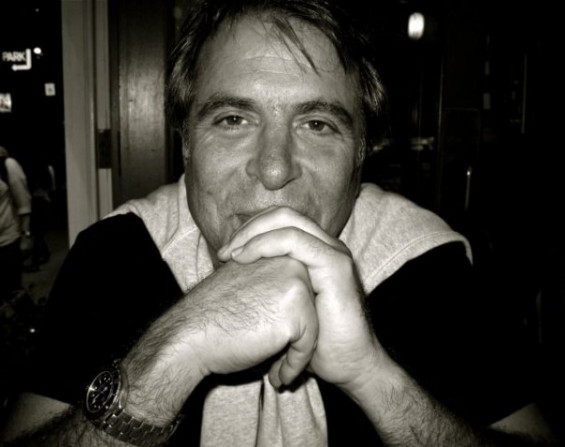
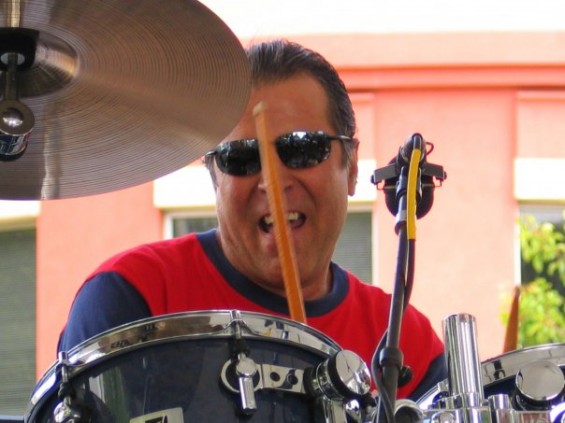
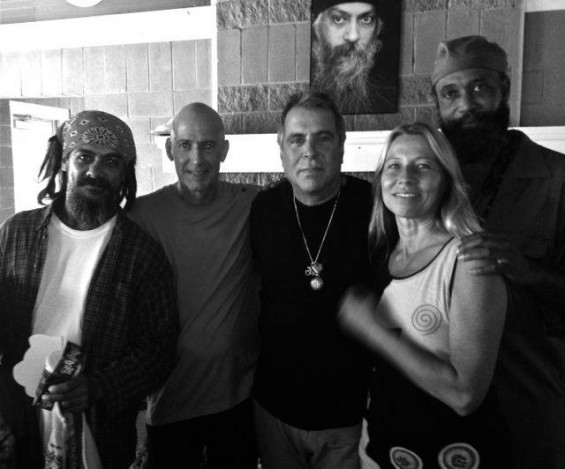
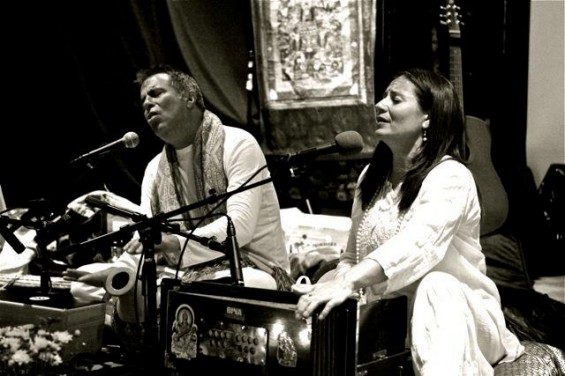
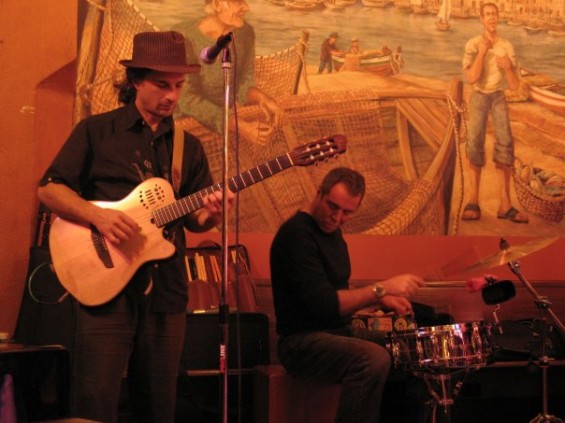
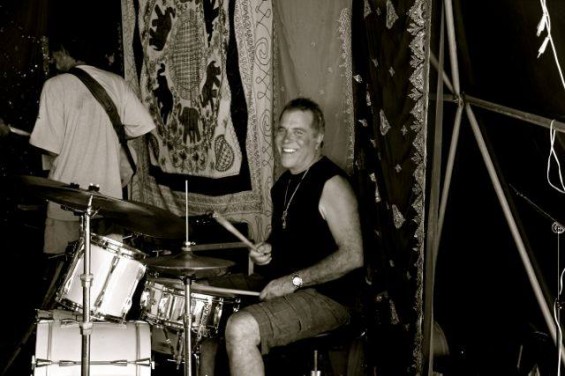
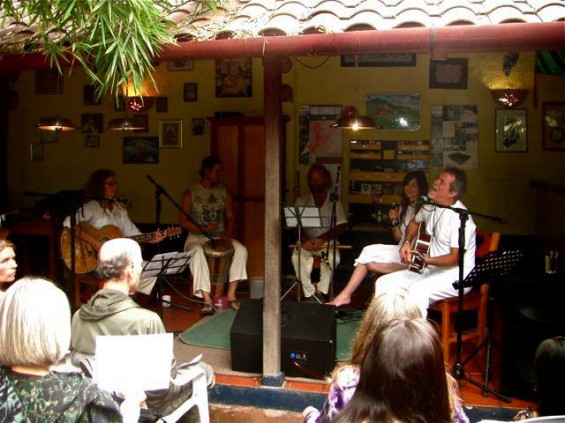
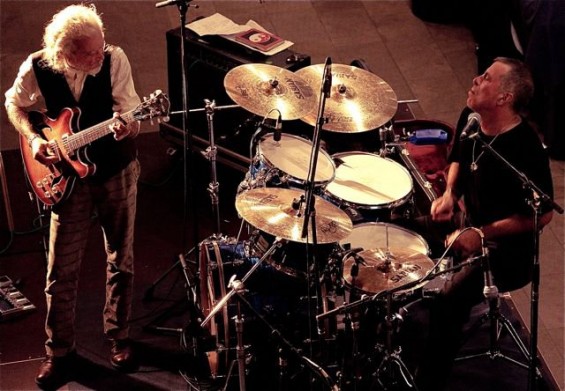
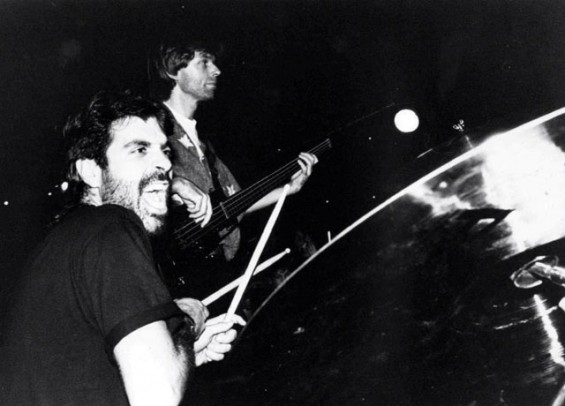
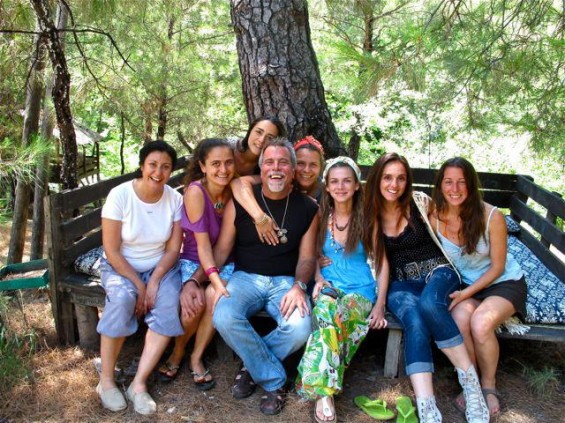
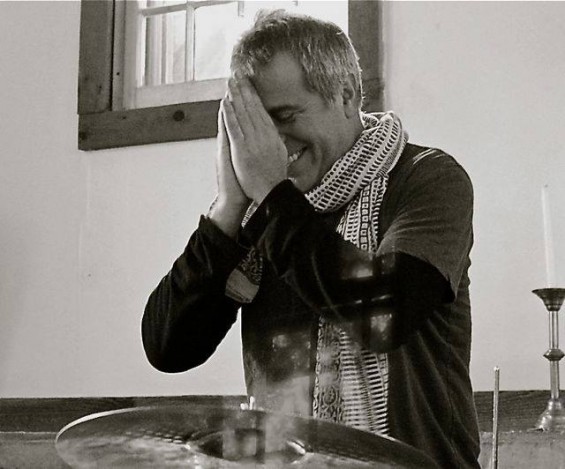


Comments are closed.